13th (Lancs) Parachute Battalion took part in what was described as 'one of the toughest battles of the campaign' for the village of Bure (during the Battle of the Bulge), to the south of Rochefort and about a kilometre from the River Lhomme, over which crossings had to be seized in order to continue the advance and stop the German breakthrough in the Ardennes.
Little did the men of 13th Parachute Battalion realize what lay in store for them as they anticipated Christmas at home before they were rushed from England to Belgium to what one 13 Para D Day veteran described as 'our biggest little battle of the war in Europe' and which 'I did not guess ...was going to be the toughest'.
On 2 January 1945 the Brigade Commander of 5 Parachute Brigade ordered the CO of 13 Para Bn to attack the village of Bure and break through to Grupont. The Battalion would come under command of 29th Armoured Brigade, supported by Sherman tanks of the Fife and Forfar Yeomanry.
Early on 3 January, in the cold and in two feet of snow, the Battalion left Resteigne on foot and advanced towards the start line. At 1300hrs the Battalion commenced their attack on Bure with A Company to secure the village, B Company the high ground and with C Company in reserve. The attack was met immediately with sustained and heavy mortar and machine gun fire, supported by enemy armour, causing a large number of casualties. This was to herald three days of bitter and intense house to house fighting with the German forces resisting fiercely.
Despite this initial onslaught by the German defenders, both Companies regrouped and A Company managed to gain a foothold in the village with B Company reaching the high ground and also entering Bure. At 1700hrs C Company were ordered to move into Bure to support A and B Companies who were holding half the village with difficulty. With tank and artillery support the rest of the Battalion were also in the village at the end of the day. Enemy counter attacks continued but the Battalion was able to form a tight perimeter around half the village and develop strongpoints in all occupied buildings. Aggressive patrolling was continued during the night and four enemy counter attacks successfully repulsed. The fighting was so close that at one stage A Company had to call down the artillery support on themselves, and the paratroopers had to resort to using knives to avoid giving away their positions. This also meant that hot food was not available for two days and casualty evacuation was not possible given the proximity of both sides to each other and the intensity of the fighting.
Throughout 4 January the Battalion was subjected to continuous and intense artillery fire, causing many casualties. Despite this, the Battalion managed to break up five German counter attacks. Enemy Tiger tanks still operating in the village made mopping up extremely difficult. In the evening a company from 2nd Battalion, Ox and Bucks from 6 Airlanding Brigade joined the Battalion as reinforcements, and in the early hours of 5th January, a determined attack by the Battalion succeeded in pushing the bulk of the enemy out of the village although one Tiger tank remained despite repeated PIAT attacks on it. However, by 2100hrs the last enemy outpost was eliminated by A Company and the village was secured and German resistance ceased.
It was then reported that 7th (Light Infantry) Parachute Battalion had entered Grupont with little resistance and at 2200hrs, the 5th Parachute Brigade Commander ordered 13th Battalion to evacuate the village to take up positions in reserve.
The Battle had been fought in atrocious weather conditions with very little sleep compounding the difficulties and bitterness of the fighting. Casualty evacuation had been a particular problem with very gallant and courageous work being undertaken by the stretcher bearers most of whom were conscientious objectors who had volunteered for their hazardous task. At one stage in the battle an ambulance did get in to Bure from which stepped Sgt Scott of 225 Parachute Field Ambulance (sadly later killed in the final days of the war) from the Regimental Aid Post (RAP), accompanied by the Padre, Rev Foy. It stopped a few yards from a German Tiger tank which rumbled up to it, almost pointing its gun through the driver’s window when the turret was flung open and out popped a German officer who agreed in perfect English that the wounded could be collected but the ambulance was not to return. Sgt Scott was later awarded the Military Medal for his bravery, but was sadly killed in the final days of the war.
Major Jack Watson, Commanding A Company into action for the first time, was awarded the Military Cross for his courage and inspiring leadership during the Battle.
Heavy casualties were sustained amounting to 7 officers and 182 men (of whom 68 were killed) by 13 (Lancashire) Para Bn (about a third of the Battalion), and 1 officer and 20 men (7 killed) by 2nd Battalion, Ox and Bucks. The Fife and Forfar Yeomanry and 23 Hussars also suffered heavy casualties including the loss of 16 Sherman tanks.
Units engaged
13th (Lancs) Parachute Battalion
Company of 2nd Battalion, Ox and Bucks Light Infantry
225 Parachute Field Ambulance
Fife and Forfar Yeomanry
23rd Hussars
With thanks to Peter Wildblood
Source:
With thanks to Peter Wildblood
Read More
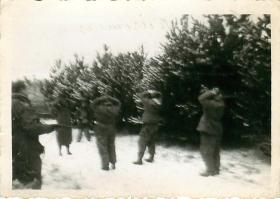
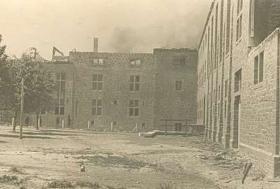
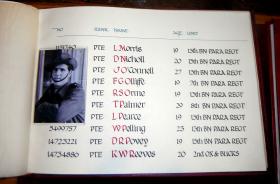
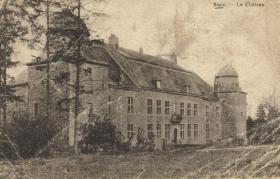
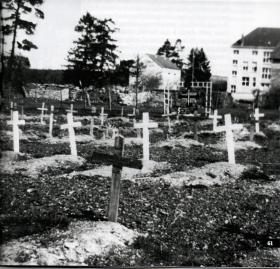
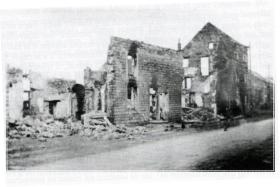
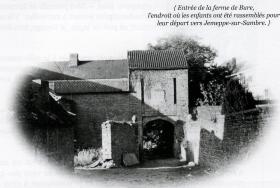
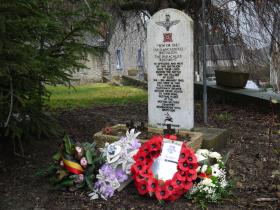
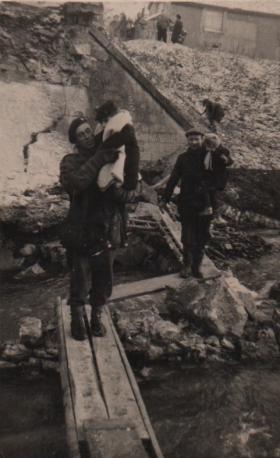
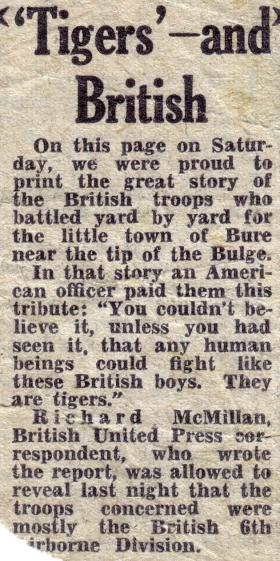

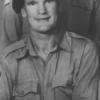
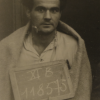
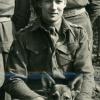
Latest Comments
Add Comment
In order to add comments you must be registered with ParaData.
If you are currently a ParaData member please login.
If you are not currently a ParaData member but wish to get involved please register.